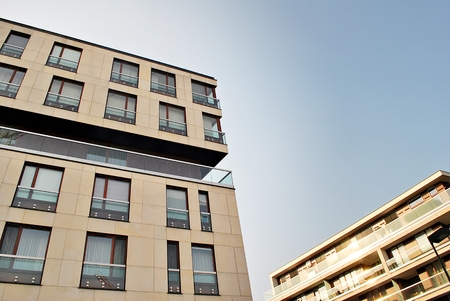A Celestial Map: The Zodiac Houses Explained
Imagine the night sky above the British Isles—mist swirling over the moors, the distant hum of a village pub, ancient stone circles standing sentinel beneath the stars. In this uniquely British landscape, the twelve astrological houses become more than cosmic abstractions; they transform into familiar rooms in the great manor of our lives. Each house is like a chamber within an old English estate, echoing with stories and shaped by tradition, community, and personal quest. Just as the rolling Yorkshire dales or winding cobbled lanes of Bath reveal hidden corners at every turn, so too do the zodiac houses invite us to explore different facets of our identity and experience. Through this lens, astrology becomes not only a celestial map but also a reflection of British life—rich in heritage, layered with meaning, and alive with possibility.
2. First House: The British Identity and Self-Presentation
The First House, also known as the Ascendant, is the lens through which the world sees us and how we choose to present ourselves. In the context of British life, the Ascendant takes on a unique hue—one tinted by centuries of tradition, an unspoken social code, and that famously understated charm. To understand the British approach to self-presentation is to witness a dance of subtlety: never too loud, never too brash, but always impeccably composed.
The Art of Understatement
If there is one defining trait woven into the British Ascendant, it is the art of understatement. Where others might boast, the Brit might offer a wry smile or a self-deprecating remark. This is not mere shyness; it’s a cultivated elegance—a way of signalling confidence without arrogance. It’s why “not bad” can mean “excellent,” and why compliments are often received with an awkward chuckle and a quick change of subject.
Tradition in Self-Expression
British manners are legendary for their politeness and reserve. The First House here embodies respect for etiquette, where handshakes are firm but not overpowering, and personal space is honoured like an invisible crown. This deference to tradition shapes not just social interactions but even dress codes—from the classic tailoring of Savile Row to the subtle signals encoded in school uniforms and public ceremonies.
Table: Key Traits of the British First House
| Trait | British Expression | Typical Phrase |
|---|---|---|
| Understatement | Downplaying achievements or emotions | “Could be worse.” |
| Manners | Politeness and formal greetings | “Would you mind if…?” |
| Classic Style | Tweed jackets, polished shoes, neat appearance | “Smart casual” |
| Quiet Confidence | Self-assurance shown through composure | “Keep calm and carry on.” |
| Respect for Privacy | Avoiding prying questions or oversharing | “Best not to pry.” |
This delicate balance between reserve and dignity forms the backbone of British identity as seen through the First House. It’s visible in every cup of tea shared during times of crisis, every polite queue at a bus stop, and in that timeless ability to weather storms with grace. In this way, the First House serves as both mask and mirror—reflecting not only how Britain wishes to be seen, but also how its deep-rooted values shape each individual encounter.
![]()
3. Fourth House: Hearth, Home and Heritage
The Fourth House in astrology is the heart of the natal chart—a realm of roots, ancestry, and sanctuary. Nowhere does this house resonate more profoundly than in Britain, where the notion of ‘home’ is woven into the very fabric of daily life. Here, the Fourth House reflects not just where we live, but how we honour our heritage and nurture our kin.
Imagine a winding lane lined with semi-detached houses, each with its own patch of garden and well-worn doorstep. The British affinity for these homes is more than architectural preference—it is a symbol of stability and continuity. The semi-detached house, with its comforting proximity to neighbours yet clear sense of personal boundary, mirrors the classic British balance between privacy and community. Within these walls, family stories are passed down over generations, echoing the Fourth House’s emphasis on lineage and belonging.
At the centre of this domestic universe sits the Sunday roast—a ritual as essential to British identity as tea at four o’clock. Gathered around tables groaning under roast beef, Yorkshire puddings, and steaming vegetables, families reinforce bonds that transcend time. This weekly gathering is a living embodiment of the Fourth House’s promise: that home is where legacy and love intertwine.
To truly understand British culture through the astrological lens is to see how fiercely the nation values its hearths—those havens from wind and rain where memories are made and traditions are kept alive. In every brick laid and meal shared, the Fourth House finds its voice in Britain’s enduring devotion to home life.
4. Seventh House: Partnership, Community, and Pub Culture
The Seventh House in astrology is the realm of partnership, collaboration, and how we relate to others. In the British context, this house finds unique expression in the everyday rituals and customs that define social life across the Isles. The essence of British partnership extends far beyond romantic bonds; it weaves through friendships, neighbourly exchanges, and community gatherings—each echoing the spirit of the Seventh House.
Tea with Neighbours: The Subtle Art of Connection
In Britain, sharing a cup of tea with a neighbour is more than just a refreshment break—it’s a gentle invitation into each others lives. This tradition is an understated yet powerful symbol of partnership, offering warmth, hospitality, and a safe space for connection. Here, conversations flow as easily as the tea itself, fostering trust and mutual understanding. The act of popping round for a cuppa is a ritual that quietly strengthens communal ties and reflects the quintessentially British way of nurturing partnerships.
The Pub: Britain’s Social Sanctuary
No exploration of British partnerships would be complete without venturing into the world of pubs. Far from being mere drinking establishments, pubs are the heartbeats of their communities—a place where friends, families, and even strangers become partners in stories both grand and humble. Whether it’s gathering for quiz night or discussing local matters by the fire, pub culture exemplifies the Seventh House’s energy by providing a setting where individual differences dissolve in shared laughter and camaraderie.
British Partnership Rituals: At Home and Out
| Setting | Ritual/Tradition | Seventh House Quality |
|---|---|---|
| Home | Inviting neighbours for tea | Hospitality & Trust |
| Pub | Joining weekly quiz nights | Camaraderie & Teamwork |
| Community Hall | Participating in local fêtes | Shared Purpose & Collaboration |
| Parks/Gardens | Organising charity bake sales | Collective Effort & Support |
The Deeper Meaning: Community as Soul Family
Beneath these traditions lies a spiritual truth—the people we partner with daily form our soul family. In Britain’s green villages and bustling cities alike, the Seventh House reminds us that true partnership is not only about romance but about finding harmony in every interaction. Whether over a steaming mug or a pint at the local, these moments are sacred threads weaving individuals into the rich tapestry of British life.
5. Tenth House: Ambition and the British Class System
The tenth house in astrology, often called the Midheaven, whispers of ambition, public image, and ones calling in the world. In Britain, where class may no longer dictate every detail of life but still lingers as a silent thread, the tenth house resonates with unique significance. Here, the pursuit of vocation is never just about individual aspiration; it’s shaped by centuries of tradition, expectation, and unspoken social codes.
Consider how many British dreams are quietly channelled through the lens of ‘knowing one’s place’—a phrase that echoes through both boardrooms and backstage corridors. The corporate world in the UK is famously hierarchical; moving from intern to executive suite can feel like crossing invisible borders drawn long before you were born. Even as meritocracy gains ground, accents and alma maters sometimes open doors faster than CVs. The tenth house placement in a natal chart may reveal not just drive, but also how one navigates these subtle boundaries—climbing ladders with determination or perhaps redefining success on their own terms.
The arts, too, serve as a stage for this interplay between ambition and class. Britain’s theatres and galleries are filled with tales of those who broke through barriers—and those whose talents were stifled by them. A rising playwright from Manchester or a sculptor from South London might find that their tenth house story is as much about resilience against entrenched norms as it is about creative achievement.
Yet the beauty of the tenth house lies in its promise: no matter one’s starting point, there is space to claim a legacy. In modern British culture, new voices are celebrated alongside old institutions; ambition now often means forging fresh paths rather than simply following prescribed routes. The zodiac reminds us that while the echoes of class endure, so too does the possibility for reinvention and self-made glory.
6. Twelfth House: Mystery, Magic and Sacred Ruins
The twelfth house in astrology whispers of the unseen, the mystical, and the places where reality blurs into legend. Nowhere is this more deeply woven into daily life than in Britain’s soul-stirring landscapes and age-old tales. Here, the twelfth house finds its echo not just in the veiled corners of one’s psyche, but in the moss-draped stone circles, ancient abbeys, and windswept ruins that dot the countryside.
The Veil Between Worlds
Britain is a land where mist curls over moors and history lingers like a ghost at twilight. The magic of the twelfth house comes alive in Arthurian legends—stories of Merlin, Avalon, and Excalibur, forever entwined with misty lakes and hidden groves. These tales are not merely bedtime stories; they are living threads that tie Britons to their ancestry and to an enduring sense of wonder.
Sacred Spaces in Everyday Life
From the standing stones at Stonehenge to the atmospheric ruins of Glastonbury Abbey, these sacred spaces act as portals to another realm. For many British people, visiting such sites is a pilgrimage—a quiet moment to listen for ancestral wisdom or commune with something greater than oneself. The twelfth house energy infuses these acts with a sense of reverence, reminding us that some mysteries are meant to be experienced rather than solved.
The Enduring Allure of Enchantment
Even in modern British culture—where the hustle of London or Manchester seems a world away from enchanted glades—the pull of magic remains strong. Folklore festivals, solstice gatherings at ancient sites, and local tales passed down through generations all keep the spirit of the twelfth house alive. It is here that Britons find solace and inspiration: in surrendering to the unknown, honouring what cannot be seen but can always be felt. The twelfth house calls each soul to remember that Britain’s heart beats strongest beneath its most mysterious ruins and within the hush of its wild places.


